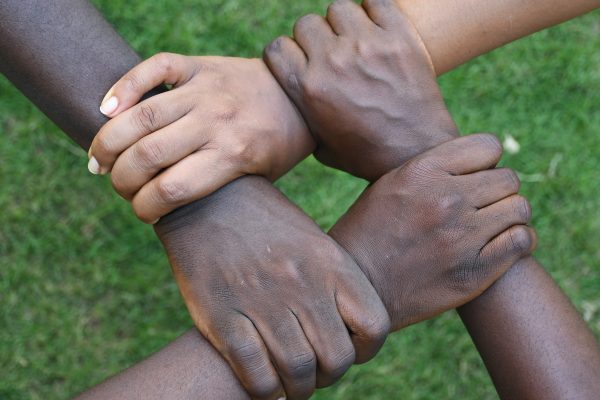The UN recognises September 5th as International Day of Charity in an effort to mobilise and inspire individuals and organisations all around the world to dedicate more of their time and money to helping others in need. This day coincides with the passing of Mother Theresa, a nun and missionary who for over 45 years took care of the sick, poor, and orphaned. Her work began in Kolkota and moved beyond the borders of India with the expansion of the Missionaries of Charity.
While we conventionally regard charity as purely altruistic, totally for the benefit of the receiver, in practice it becomes apparent that giving acts reciprocally on us as the giver. There are many ways in which we benefit from helping others.
Personal Benefits of Giving
For one, our brains are biologically wired to reward us for giving. Contemporary social neuroscience research has demonstrated that when we give money, a region of the brain called the striatum lights up. Activity in this area is also associated with other activities that we derive satisfaction from like listening to music and eating dessert. When we participate in gift-giving, our brains secrete chemicals like serotonin, dopamine, and oxytocin that make us feel good. This encourages us to conduct more and more acts of kindness– a phenomenon also known as “helper’s high.”
Altruistic practices can help us be better people by developing our sense of empathy. Our concern for another person’s well-being is emphasised when we identify with aspects of their struggle. Researchers have found that this type of concern is a major motivator of altruistic behaviour. This is known as the empathy-altruism hypothesis. What follows is a feedback loop, the more altruistic behaviour we exhibit, the more rewarded we feel, the more we build our capacity for empathy, the more we are motivated to be altruistic, and so on.
Studies have also shown that dedicating time and energy to helping others can have a profound impact on our mental and physical health. Research has linked volunteering to lower rates of significant illness, mortality, depression, and anxiety.
Insight gained from research shows that helping others can help boost our own mood and comfort us in times of struggle. We hear the echoes of these findings in the words of Hussain Ibn Ali, who said, “Charity and alms are the best remedy for ailments and calamities.”
When we reflect on our own experience at Who is Hussain serving in our local communities, this certainly rings true. When we are down, and feel overwhelmed by our own personal turmoil, we can redirect our attention towards the task of bettering the lives of the people around us. This way, we channel our energy into something productive, positive, and rewarding.
It’s true; helping people does make us feel better.
Who is Hussain Charitable Projects
Recently, our teams have been organising charitable initiatives all around the world. In Miami, our volunteers have been focusing on alleviating the burdens of homelessness and domestic abuse in their communities. In partnership with trusted local charities Project Downtown and Women in Distress, they provide hot meals, dry foods, hygiene kits, and clothes to their neighbours in need.
In Palmerston North, our New Zealand-based team collaborated with Just Zilch – Food Rescue & Free Store to cook and distribute hot meals to those facing hunger in their localities. Reflecting on their experiences, they ask us to, “Imagine a world where kindness is the norm.” They challenge us to commit more wholeheartedly to the task of improving the lives of those most vulnerable members of our communities.
Giving Responsibly & Thoughtfully
While it can feel most rewarding to volunteer in person, monetary donations are also extremely impactful when it comes to supporting humanitarian organisations that do the hard work of directly supporting the most vulnerable populations in the world.
We all give with the best of intentions. We give in the hope that our donation will do good with minimal harm, but there is always room for us to become more responsible and thoughtful donors.
When you make a monetary donation, it is important to be mindful of where your money is going and how it is being used. Here are a few questions to consider when selecting a cause/organisation to donate to:
- What causes are you passionate about/feel most connected to?
- What causes are the most pressing/urgent in the world?
- How much are you able/willing to give?
- Is the organisation you’re considering a registered charity?
- What are the organisation’s values? Do they align with your own?
- What is the organisation’s track record? What kind of initiatives have they successfully organised in the past?
- What percentage of your donation goes to the cause?
- How does the organisation report impact to its donors?
In order to honour Mother Teresa’s legacy, the legacy of our own champion Hussain Ibn Ali, and celebrate the example of other charitable individuals and groups, Who is Hussain is turning its attention towards charitable acts in the month of September. We invite you to join us by supporting our initiatives, or making your own contribution, whether they be through monetary donation or by volunteering, to other causes you care deeply about.




